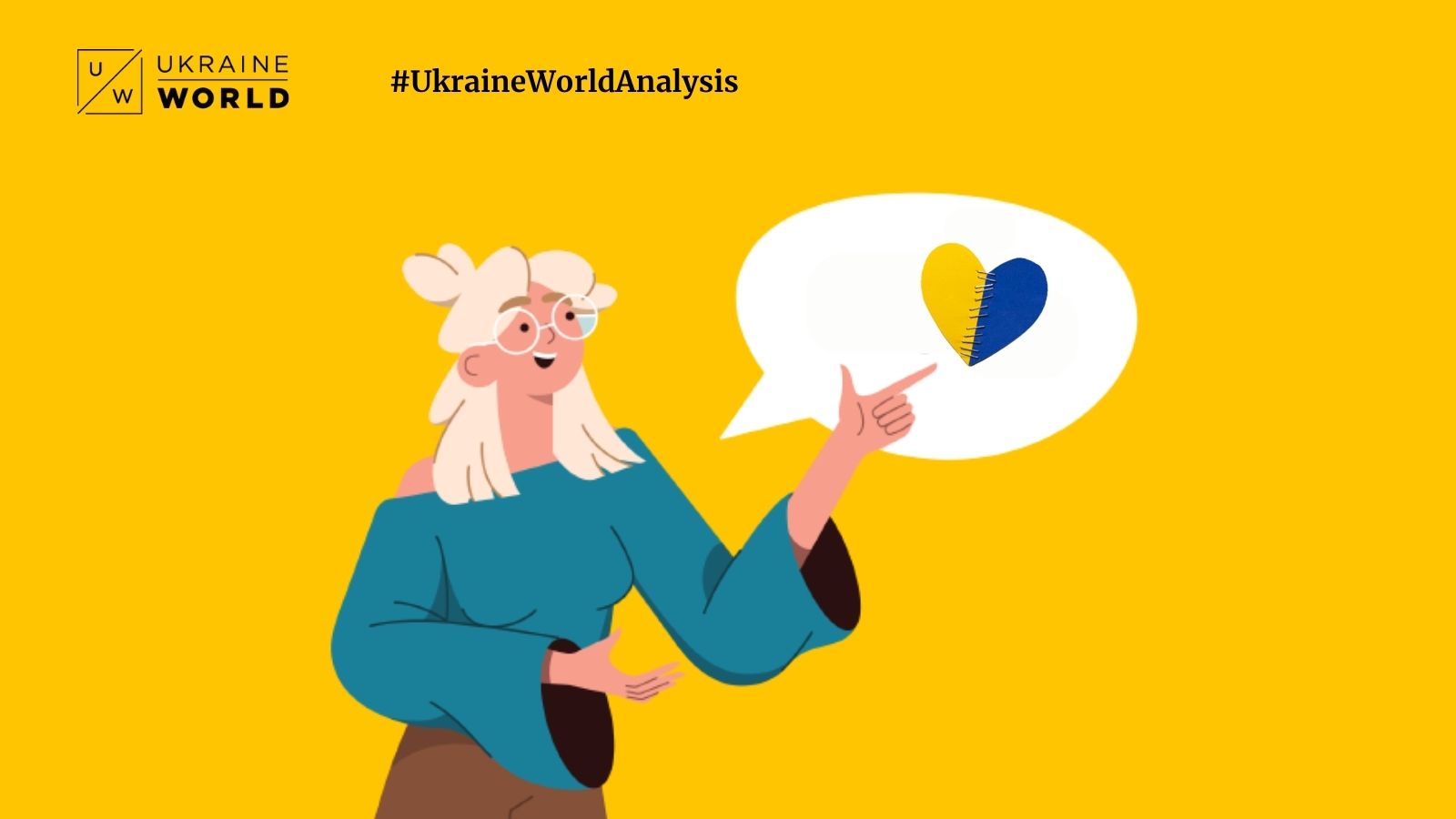UkraineWorld spoke to Orysya Demska, professor at the National University “Kyiv-Mohyla Academy”.
Key points – in our brief, #UkraineWorldAnalysis:
1. On linguicide of the Ukrainian language
- We can find the origins of linguicide in the idea of the Russian Empire, which claimed to be the heir of Kyivan Rus. It insisted on the bizarre idea that all people spoke the same language, which was not the case, and that everyone in the Russian Empire should speak the same language, Russian, as the language of Kyivan Rus. This is a political manipulation. It is important for an empire to have one language, because it is economically efficient. Another factor is that for many people of the former and current Russian empire, the Russian language is a second, non-native language. There is a transformation of consciousness under the influence of a non-native language - a secondary individual with a secondary language emerges.
- The Russian Empire developed a system of Russian language hegemony. In the 17th century, there were two restrictions of the Ukrainian language, with another seven in the 18th century, 13 in the 19th century, and 24 in the 20th century. If earlier it was forbidden to do something, then in the 20th century measures were aimed at narrowing the choice as such. The Soviet system invented measures like the destruction of the internal language system. For example, words were shortened and replaced with Russian words with Ukrainian phonetics. If you ban a language, then it can simply arise in another place, but if you make such transformations in the language system that it turns into the language of the invader, then there will be nothing to ban.
- Russians have a very big inferiority complex about Ukrainians. They understand that they are not the only heirs of Kyivan Rus. Timothy Snyder points out an important thing: it's not so important what you inherit as what happens next. The Russians fell under the Horde system, and Ukraine under the European one. We inherited Rus law, while they did not. The apogee of their complex is the Shevchenko monument in Luhansk, which they labeled as a "Russian poet".
2. On the role of the Ukrainian language for the modern identity of Ukraine
- Ukrainian identity is built on the Ukrainian language and culture, but we must remember that the Ukrainian language is dominant, even when we do not speak it. There are explicit (visible) and invisible markers of identity. Ukrainian multilingualism in particular belongs to the latter category.
- The Russian language and aggression towards other languages appear in the Russian identity, while Ukraine relies on inclusiveness and multilingualism - Greek, Crimean Tatar, etc. Ukrainian remains unifying and state language.
3. On why people in other countries are learning the Ukrainian language
- Some people are trying to express support and solidarity by learning Ukraine's language, while others understand that Ukraine will be rebuilt by the whole world, and businesses need to use the language of the country with which they are going to cooperate.
- There are currently many temporarily displaced Ukrainians in Poland. This is how Ukrainian is being established in Europe - if a foreign language community appears, it becomes worthwhile to get acquainted with its language.
4. On the idea of Ukraine's "Russian-speaking population"
- The objectification of the term "population" is noteworthy, that is, there is some ideological entity that must be obeyed. Not all Russian-speaking people seek to be part of the "Russian world."
- There are Russian speakers in Ukraine, but not a "Russian-speaking population" as such; they do not want to be the population of the USSR, modern, or Soviet Russia. When there is synergy between the linguistic unit and the non-linguistic reality, then this is a working scheme. Ukrainians believed in the phrase "Russian warship go..." and did everything to make it come true.
5. On what lays ahead for the state regarding the Ukrainian language
- Modern Ukraine needs to fulfill several tasks. Firstly, it must review the main principles of its domestic language policy. We have Article 10 of the Constitution, which stipulates the special status of the Russian language. Instead, in post-war Ukraine, this article should be made simple: Ukrainian is the only state language of Ukraine.
- Secondly, we have never had a foreign language policy. Ukraine is becoming a member of the European Union, and the Ukrainian language will become the 25th official language. Certain steps need to be taken, from language diplomacy to creating examinations on the Ukrainian language in accordance with the recommendation of the Council of Europe on language education.
DARIA SYNHAIEVSKA, ANALYST AND JOURNALIST AT UKRAINEWORLD
Orysya Demska, professor at the National University “Kyiv-Mohyla Academy”
This material was prepared with financial support from the International Renaissance Foundation.

